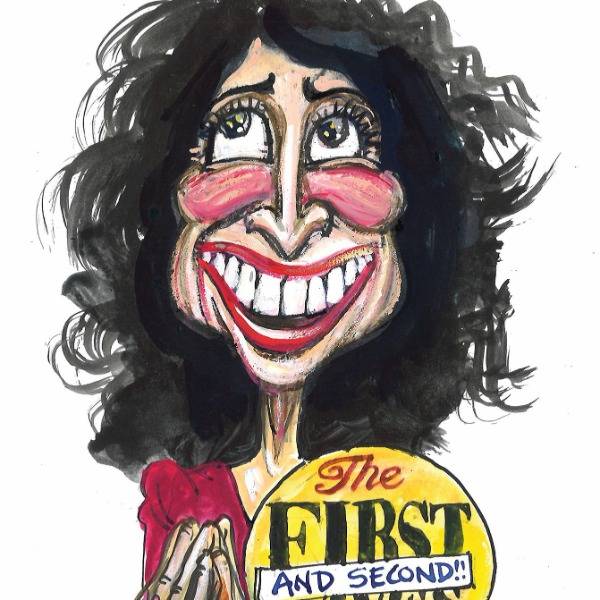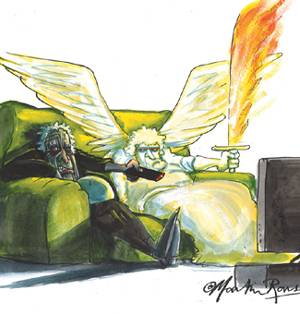
While some of my more creative colleagues have used their lockdown time to pen indulgent autobiographies, increase the size of their biceps, or finally master the intricacies of Derridean deconstructionism, I’ve passed a productive nine months developing a personal deterioration index.
What prompted this initiative was the melancholy realisation that several of my nearest and dearest were developing a range of unacknowledged signs of ageing. Consider my former academic colleague Ralph Stigsby. He’s now drifting inexorably into late middle age. Nothing at all the matter with that. It is happening to most of us. But Ralph, whose early work on the French symbolist poets was described in the Times Literary Supplement as “unexpectedly lucid”, has singularly failed to bring any such perceptual clarity to his own physical condition.
Now, I was only too happy when Ralph announced his intention to come round and watch the Euro 2020 matches on my television. I reckoned that the presence of such a celebrated academic on the domestic sofa might go some way to temper my wife’s constant contention that there was surely something more to life than watching 22 grown men kicking a ball backwards and forwards.
But even before the first match had reached half time, I found my attention wandering. For even as Raheem Stirling set off on another dazzling run or Harry Kane let loose a blistering shot, I was distracted by my sofa companion’s complaints about the inadequacy of the television picture and the incoherence of the commentary. At first I attempted to accommodate my companion’s problem by subtly shifting the sofa nearer to the screen and unobtrusively yanking up the sound level. It was only when Ralph missed yet another critical moment in the Germany game because of his need for a further trip to the bathroom that I made my personal resolution. Rather than ignoring any of my own developing physical deficiencies, rather than blaming them upon faults in material reality, I would draw up a definitive list: a deterioration index.
I began with my sight. Now, although cataract surgery means that I no longer need to nudge the sofa closer to the television or noisily complain about the size of the print in contemporary novels, I have noted on the very first page of my index that from time to time the world around me unexpectedly starts to rotate. An armchair which customarily sits firmly alongside my sofa can quite suddenly take to the air and deposit itself alongside the bookshelf on the other side of the room. This optical displacement remedies itself in several seconds, but in my index the phenomenon is marked down as firm evidence of deteriorating sight, rather than being falsely attributed to the recurrence of an ancient acid trip or the intervention of a hostile poltergeist.
I have been equally circumspect about my hearing. My index has absolutely no truck with the idea that young people now only speak in murmurs or with the notion that the age of my iPhone has interfered with its volume control.
These deteriorations only occupy a small part of the index. On other pages I note that my occasional stumbles on the way to my local Waitrose can no longer be attributed to the local council’s inability to fix cracks in the paving stones, and that there are really no grounds for maintaining that Marks & Spencer have been subtly reducing the size of trouser waistbands. My deterioration index announces the real truth in capital letters: “GETTING FATTER”.
It has not all been plain sailing. Until recently, for example, I had come to the conclusion that my newfound inability to readily retrieve a packet of biscuits from the very top shelf of the kitchen cabinet could only be attributed to the slipperiness, the ungraspability, of the new plastic packaging. However, a recent medical examination has led to a much more considered entry in my index. After feeling my pulse and pressing my stomach in a few places, my doctor invited me to stand up straight on the scales in the corner of the surgery. “Very good. Very good,” he muttered (he did mutter) as he lowered the wooden measuring bar onto my scalp. “But there is just one thing. It happens to everyone. Nothing to worry about. It’s an ageing process.”
That “one thing” is now dutifully recorded in my deterioration index. Under Biscuit Tin Retrieval, there is the sad but terse truth: “GETTING SHORTER”.
This article is from the New Humanist autumn 2021 edition. Subscribe today.

